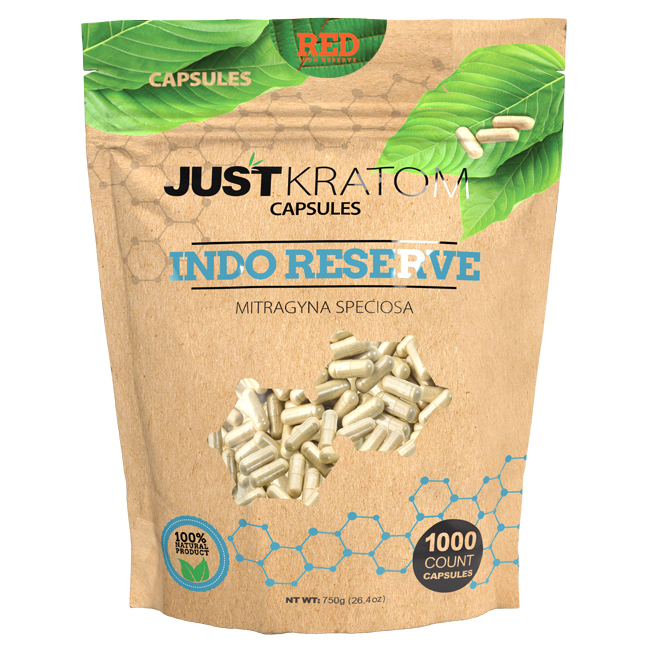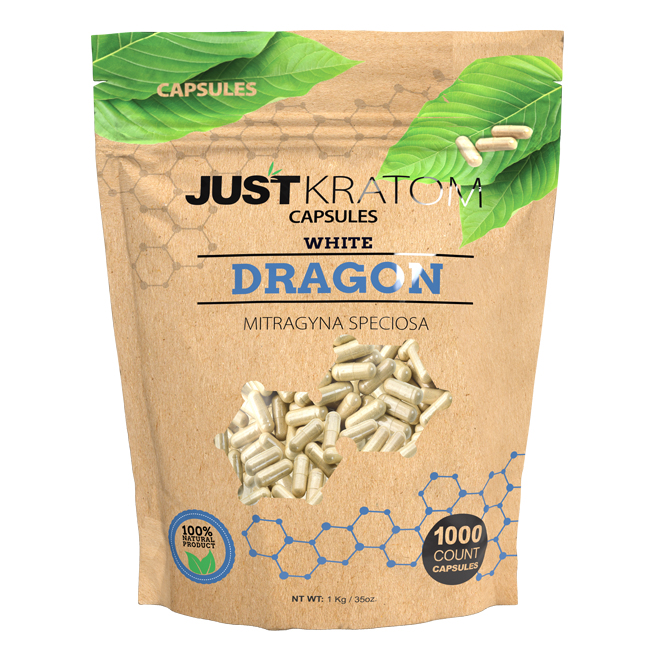Potential Benefits of Kratom for Chronic Fatigue Syndrome
Chronic Fatigue Syndrome (CFS) is a debilitating condition characterized by persistent and overwhelming fatigue that isn’t relieved by rest. Individuals with CFS often experience a range of other symptoms, including muscle and joint pain, cognitive difficulties, and sleep disturbances. Kratom, an herb native to Southeast Asia, has gained attention as a potential natural remedy for CFS due to its purported energizing and pain-relieving effects.
Energy Enhancement
Kratom’s potential benefits for individuals with Chronic Fatigue Syndrome (CFS) stem primarily from its proposed effects on energy levels and pain management. Users often report experiencing increased alertness and reduced fatigue after consuming kratom, which may offer some relief from the debilitating exhaustion that is central to CFS. Additionally, kratom’s analgesic properties could potentially alleviate the muscle and joint pain commonly associated with CFS, contributing to an improved overall sense of well-being.

Pain Management
Kratom’s potential benefits for individuals with Chronic Fatigue Syndrome (CFS) stem primarily from its proposed effects on energy levels and pain management. Users often report experiencing increased alertness and reduced fatigue after consuming kratom, which may offer some relief from the debilitating exhaustion that is central to CFS. Additionally, kratom’s analgesic properties could potentially alleviate the muscle and joint pain commonly associated with CFS, contributing to an improved overall sense of well-being.
However, it is crucial to emphasize that research on kratom’s effectiveness for CFS is limited and largely anecdotal. More rigorous scientific studies are needed to fully understand its potential benefits and risks.
Mood Elevation
Kratom users often report experiencing mood elevation along with increased energy levels.
While more research is needed, these effects could potentially be beneficial for individuals struggling with the fatigue and low mood associated with Chronic Fatigue Syndrome.
Scientific Evidence and Studies
Scientific evidence plays a crucial role in evaluating the potential benefits and risks of any treatment, including natural remedies like kratom. In the case of chronic fatigue syndrome (CFS), where symptoms can significantly impact quality of life, understanding the scientific basis for potential treatments is essential. While anecdotal reports suggest that kratom may offer relief from CFS symptoms, rigorous scientific studies are needed to confirm these claims and determine the safety and efficacy of kratom as a treatment option.
Limited Research on CFS and Kratom
Scientific research on kratom’s effectiveness in treating Chronic Fatigue Syndrome (CFS) is currently limited. While there are anecdotal reports from individuals who claim kratom has helped manage their CFS symptoms, robust scientific studies are lacking to confirm these benefits.
The existing research on kratom primarily focuses on its potential effects on pain, energy levels, and mood, but further investigations are necessary to determine its specific impact on the complex constellation of symptoms associated with CFS.
Preclinical Studies and Animal Models
Preclinical studies involve experiments conducted on cells or animals in a laboratory setting. These studies can provide initial insights into the biological mechanisms by which a substance might exert its effects. In the context of kratom and CFS, preclinical studies could investigate how kratom compounds interact with cellular receptors involved in fatigue, pain signaling, and mood regulation.
- Animal models are living organisms (like mice or rats) used to simulate human diseases or conditions.
- Researchers can study the effects of kratom on animal models exhibiting fatigue-like symptoms or other CFS-related characteristics.
While preclinical studies and animal models are valuable tools for initial exploration, they cannot definitively predict how a substance will affect humans.
The results obtained from these studies must be carefully interpreted and further validated through human clinical trials.
Human Trials and Observational Studies
Human trials are considered the gold standard for evaluating the safety and efficacy of any treatment. In the context of kratom and CFS, well-designed human clinical trials would involve participants with diagnosed CFS who are randomly assigned to receive either kratom or a placebo (a inactive substance).
These trials would need to be carefully controlled to minimize bias and confounding factors. Researchers would monitor participants closely for changes in fatigue levels, pain severity, sleep quality, cognitive function, and other relevant CFS symptoms.
Observational studies involve observing and collecting data on individuals without manipulating any variables. In the context of kratom and CFS, observational studies could examine patterns of kratom use among individuals with CFS.
Researchers might analyze existing health records or survey participants about their kratom use and associated health outcomes. While observational studies can provide valuable insights into real-world patterns of use and potential associations between kratom and CFS symptoms, they cannot establish a direct causal link.
Dosage and Administration
Determining the appropriate dosage and method of administration for kratom is crucial for ensuring both safety and efficacy. Factors such as an individual’s weight, tolerance, and desired effects should be considered when deciding on a dose. Kratom can be consumed in various forms, including capsules, powder, or tea.
Recommended Starting Dosage
Determining the appropriate dosage and method of administration for kratom is crucial for ensuring both safety and efficacy. Factors such as an individual’s weight, tolerance, and desired effects should be considered when deciding on a dose. Kratom can be consumed in various forms, including capsules, powder, or tea.
Recommended starting dosages for kratom can vary depending on individual factors and intended use. It is generally advisable to begin with a low dose and gradually increase it as needed while carefully monitoring for any side effects.
Factors Affecting Dosage
Dosage and administration of kratom are crucial considerations for both safety and efficacy. Factors influencing dosage include an individual’s body weight, tolerance, desired effects, and the form of kratom being used (capsules, powder, or tea).
Starting with a low dose and gradually increasing it while monitoring for side effects is recommended. The specific starting dosage can vary based on individual factors and intended use.
Factors like age, metabolism, and previous experience with kratom can also play a role in determining the appropriate dosage. Consulting with a healthcare professional experienced in alternative therapies or a qualified herbalist can be beneficial for personalized guidance on kratom dosage and administration.
Administration Methods
Determining the appropriate dosage and method of administration for kratom is crucial for ensuring both safety and efficacy. Factors such as an individual’s weight, tolerance, and desired effects should be considered when deciding on a dose. Kratom can be consumed in various forms, including capsules, powder, or tea.
Recommended starting dosages for kratom can vary depending on individual factors and intended use. It is generally advisable to begin with a low dose and gradually increase it as needed while carefully monitoring for any side effects.
Dosage and administration of kratom are crucial considerations for both safety and efficacy. Factors influencing dosage include an individual’s body weight, tolerance, desired effects, and the form of kratom being used (capsules, powder, or tea). Starting with a low dose and gradually increasing it while monitoring for side effects is recommended. The specific starting dosage can vary based on individual factors and intended use.
Factors like age, metabolism, and previous experience with kratom can also play a role in determining the appropriate dosage. Consulting with a healthcare professional experienced in alternative therapies or a qualified herbalist can be beneficial for personalized guidance on kratom dosage and administration.
Potential Side Effects and Risks
While kratom shows promise as a potential natural remedy for Chronic Fatigue Syndrome (CFS), it is essential to be aware of the potential side effects and risks associated with its use. Kratom’s effects can vary significantly depending on factors such as dosage, individual metabolism, and prior experience.
Gastrointestinal Issues
Potential side effects of kratom use can range from mild to severe. It’s important to be aware of these risks before using kratom, especially if you have pre-existing health conditions or are taking other medications.
- Gastrointestinal Issues:
- Nausea
- Vomiting
- Diarrhea
- Constipation
- Cardiovascular Effects:
- Increased heart rate
- Elevated blood pressure
- Central Nervous System Effects:
- Drowsiness
- Headache
- Anxiety
- Paranoia
- Other Potential Side Effects:
- Weight changes
- Dry mouth
- Itching
- Sweating
- Muscle aches
If you experience any adverse effects while using kratom, it’s important to discontinue use and consult with a healthcare professional.
Cardiovascular Effects
While kratom shows promise as a potential natural remedy for Chronic Fatigue Syndrome (CFS), it is essential to be aware of the potential side effects and risks associated with its use. Kratom’s effects can vary significantly depending on factors such as dosage, individual metabolism, and prior experience.
Potential side effects of kratom use can range from mild to severe. It’s important to be aware of these risks before using kratom, especially if you have pre-existing health conditions or are taking other medications.
Cardiovascular Effects:
- Increased heart rate
- Elevated blood pressure
If you experience any adverse effects while using kratom, it’s important to discontinue use and consult with a healthcare professional.
Dependency and Withdrawal Symptoms
While kratom shows promise as a potential natural remedy for Chronic Fatigue Syndrome (CFS), it is essential to be aware of the potential side effects and risks associated with its use. Kratom’s effects can vary significantly depending on factors such as dosage, individual metabolism, and prior experience. Potential side effects of kratom use can range from mild to severe. It’s important to be aware of these risks before using kratom, especially if you have pre-existing health conditions or are taking other medications.
Potential side effects include:
- Gastrointestinal Issues: Nausea, vomiting, diarrhea, constipation
- Cardiovascular Effects: Increased heart rate, elevated blood pressure
- Central Nervous System Effects: Drowsiness, headache, anxiety, paranoia
- Other Potential Side Effects: Weight changes, dry mouth, itching, sweating, muscle aches
If you experience any adverse effects while using kratom, it’s important to discontinue use and consult with a healthcare professional.
Like many substances, kratom can lead to dependency and withdrawal symptoms. Regular use can result in physical and psychological dependence, making it difficult to stop without experiencing uncomfortable withdrawal effects.
Withdrawal symptoms from kratom can include:
- Anxiety
- Irritability
- Nausea
- Muscle aches
- Fatigue
- Restlessness
It’s important to note that these symptoms can vary in severity and duration depending on the individual and their usage pattern. If you are concerned about potential dependency or withdrawal, it is crucial to consult with a healthcare professional for guidance and support.
Legal Status and Regulation
The legal status of kratom varies significantly around the world. In some countries, it is completely banned, while in others it is legal but tightly regulated. The United States has seen a patchwork of regulations, with some states prohibiting kratom outright and others allowing its sale and possession under certain restrictions. These differing legal statuses reflect ongoing debate about the safety and potential benefits of kratom, highlighting the need for further research and clear guidelines.
Varying Legal Landscape
The legal status of kratom is complex and varies widely across the globe. Some countries have completely banned its sale and possession, while others permit it with varying degrees of regulation. The United States exemplifies this variability, with a patchwork of state-level laws ranging from outright prohibitions to permissive regulations. This inconsistency underscores the need for comprehensive scientific research and standardized legal frameworks to ensure both consumer safety and responsible use.
This patchwork approach to regulation reflects the ongoing debate surrounding kratom’s potential benefits and risks. As more research emerges, it is likely that legal landscapes will continue to evolve, potentially leading to further harmonization or stricter controls in some jurisdictions.
Safety Concerns and Regulations
Legal regulations surrounding kratom vary greatly depending on geographical location. Some countries have completely banned it, while others allow its sale with specific restrictions. The United States exemplifies this complexity, with individual states enacting diverse regulations ranging from outright prohibitions to permissive allowances. This inconsistent regulatory landscape highlights the need for comprehensive scientific research and standardized guidelines to ensure both consumer safety and responsible kratom use.
Safety concerns related to kratom stem from potential side effects and the risk of dependence. While some users report beneficial effects, others experience adverse reactions such as nausea, vomiting, constipation, heart palpitations, anxiety, and headaches. Long-term use can lead to physical and psychological dependence, resulting in withdrawal symptoms upon discontinuation. These symptoms may include irritability, fatigue, muscle aches, and intense cravings.
It is crucial for individuals considering kratom to be aware of these potential risks and consult with a healthcare professional to assess its suitability for their individual circumstances.
Alternative Treatment Options
Chronic Fatigue Syndrome (CFS) is a debilitating condition characterized by persistent and overwhelming fatigue that isn’t relieved by rest. Individuals with CFS often experience a range of other symptoms, including muscle and joint pain, cognitive difficulties, and sleep disturbances. Kratom, an herb native to Southeast Asia, has gained attention as a potential natural remedy for CFS due to its purported energizing and pain-relieving effects.
Cognitive Behavioral Therapy (CBT)
Cognitive Behavioral Therapy (CBT) is a type of psychotherapy that focuses on the connection between thoughts, feelings, and behaviors. It helps individuals identify and change negative or unhelpful thought patterns and develop healthier coping mechanisms for managing difficult emotions and situations.
In the context of Chronic Fatigue Syndrome (CFS), CBT can be particularly helpful in addressing the psychological and emotional challenges associated with this complex condition.
Individuals with CFS often experience anxiety, depression, and a sense of hopelessness due to their persistent fatigue and limitations. CBT can equip them with tools to manage these emotions effectively.
CBT therapy typically involves working with a qualified therapist who will guide you through structured sessions.
- Cognitive Restructuring: This involves identifying and challenging negative or distorted thoughts that contribute to feelings of fatigue, helplessness, or anxiety.
- Behavioral Activation: This focuses on gradually increasing engagement in activities that are pleasurable or meaningful, even when energy levels are low.
- Relaxation Techniques: Learning techniques such as deep breathing exercises or mindfulness meditation can help manage stress and improve overall well-being.
It’s important to note that CBT is not intended to “cure” CFS, but rather to equip individuals with strategies for coping and improving their quality of life.
Combining CBT with other treatments, such as medication or lifestyle modifications, can provide a more comprehensive approach to managing CFS symptoms.
Exercise and Lifestyle Modifications
Alongside potential benefits from kratom, it’s important to explore alternative treatment options that have been scientifically proven to help manage Chronic Fatigue Syndrome (CFS) symptoms. Exercise and lifestyle modifications play a crucial role in improving the quality of life for individuals with CFS.
Regular, moderate exercise can be beneficial, even if you experience fatigue. It’s important to start slowly and gradually increase intensity and duration as your stamina improves. Activities like walking, swimming, or cycling can help boost energy levels, improve sleep patterns, and reduce muscle pain.
Lifestyle modifications are equally important for managing CFS.
- Prioritizing Sleep: Aim for 7-9 hours of quality sleep each night to allow your body to rest and recover. Establishing a regular sleep schedule can help regulate your body’s natural rhythms.
- Healthy Diet: Focus on consuming nutrient-rich foods, including fruits, vegetables, whole grains, and lean proteins. Avoid processed foods, sugary drinks, and excessive caffeine, which can exacerbate fatigue.
- Stress Management: Engage in relaxation techniques such as meditation, yoga, or deep breathing exercises to reduce stress levels, which can worsen CFS symptoms.
- Pacing Yourself: Break down tasks into smaller, manageable chunks and take frequent breaks throughout the day to avoid overexertion.
Remember that managing CFS is a personalized journey. It’s important to work with healthcare professionals who can provide tailored guidance and support.

Medications for Fatigue and Pain
Kratom is an herbal supplement gaining attention for its potential benefits in managing Chronic Fatigue Syndrome (CFS) symptoms, particularly fatigue and pain. However, it’s essential to understand that research on kratom’s efficacy for CFS is limited and mostly anecdotal.
Here are some key points regarding kratom and CFS:
* **Potential Benefits:** Kratom’s effects stem from alkaloids like mitragynine and 7-hydroxymitragynine, which may interact with opioid receptors in the brain, leading to pain relief and mood elevation. Some individuals report increased energy levels and reduced fatigue after using kratom.
* **Limited Research:** Scientific studies specifically investigating kratom’s effectiveness for CFS are lacking. Most evidence comes from user testimonials and small-scale observational studies, which cannot establish a definitive cause-and-effect relationship.
* **Potential Risks and Side Effects:** Kratom can have adverse effects, including nausea, vomiting, constipation, dizziness, anxiety, and insomnia. Long-term use may lead to dependence and withdrawal symptoms. It’s crucial to consult a healthcare professional before using kratom, especially if you have pre-existing health conditions or take medications.
* **Legal Status:** Kratom’s legal status varies widely. It is banned in some countries and states while permitted with regulations in others. Always check your local laws before using kratom.
**Alternative Treatment Options for CFS**
In addition to exploring kratom, consider these evidence-based treatments for CFS:
* **Cognitive Behavioral Therapy (CBT):** CBT helps individuals identify and manage negative thought patterns and develop coping mechanisms for fatigue, anxiety, and depression associated with CFS.
* **Graded Exercise Therapy (GET):** A structured exercise program designed to gradually increase activity levels while monitoring symptoms.
* **Medications:** Certain medications like antidepressants or anti-fatigue drugs may be prescribed by a doctor to manage specific symptoms.
* **Lifestyle Modifications:** Prioritizing sleep, maintaining a healthy diet, stress management techniques (meditation, yoga), and pacing activities can significantly improve overall well-being for those with CFS.
Remember that managing CFS is a journey, and finding the right combination of treatments may take time and involve working closely with healthcare professionals.
Conclusion
While kratom shows promise as a potential natural remedy for Chronic Fatigue Syndrome (CFS), its use should be approached with caution and under the guidance of a healthcare professional.
The existing research on kratom’s effectiveness for CFS is limited, primarily relying on anecdotal evidence and small-scale studies. More rigorous scientific investigations are needed to fully understand its potential benefits and risks.
It’s crucial to be aware of potential side effects, including gastrointestinal issues, cardiovascular effects, central nervous system disturbances, and the risk of dependence.

Furthermore, kratom’s legal status is complex and varies significantly across different regions. Always consult local laws before using kratom.
In addition to exploring kratom, consider evidence-based treatment options for CFS, such as cognitive behavioral therapy (CBT), graded exercise therapy (GET), medication, and lifestyle modifications.
A comprehensive approach that combines these strategies under the guidance of healthcare professionals can offer a more informed and personalized path towards managing CFS symptoms.
Order Kratom capsules for an energy pick-me-up
- Forehead Frown Lines Treatment Near Stanwell, Surrey - May 7, 2025
- Downturned Smile Treatment Near Egham, Surrey - May 6, 2025
- Lip Flip Treatment Near Kenley, Surrey - May 5, 2025
